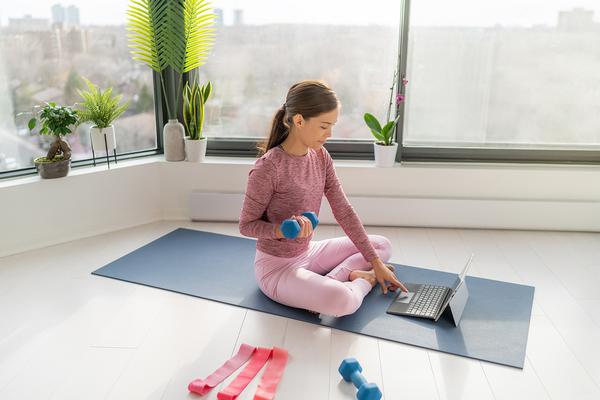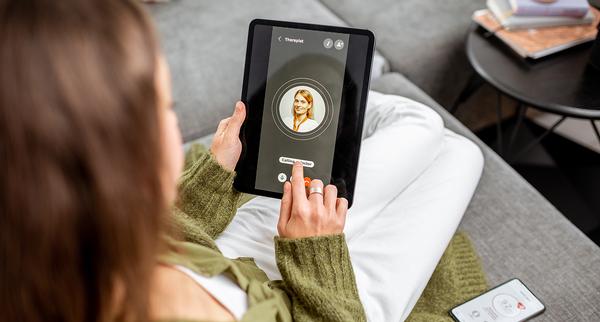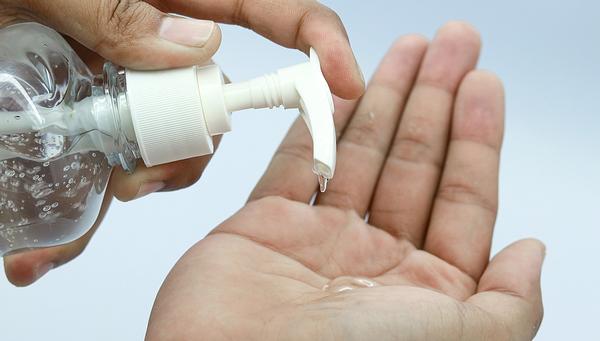



SELECTED
ISSUE
|
|
Leisure Management - Webinar wisdom

Insights

|
|
| Webinar wisdom
|

Suddenly the spa industry is flooded
with online group calls, chats, webinars
and virtual roundtables as the sector
takes stock of what’s happened and
where things are headed following the
coronavirus outbreak. Lisa Starr shares
her takeaways from 30 different sessions
Lisa Starr, Wynne Business
|

Spas will need to visibly demonstrate heightened hygiene standards bankerwin/shutterstock


Will VR therapies, such as Sensync at Four Seasons, grow in popularity?


Fitness operators switched to online service delivery in a flash Maridav/SHUTTERSTOCK


Retailers will use virtual training to refresh product knowledge RossHelen/shutterstock


There will be a big focus on new cleanliness and hygiene SOPs
|
|
|
In the midst of an unprecedented global shutdown of practically every business imaginable, most of us found ourselves adrift for at least a few days. Many thousands in spas worldwide have been laid off or furloughed, or work has dried up for obvious reasons. Schedules disrupted, travel upended, personal meetings rescheduled or shifted to online versions, or no work at all, and we suddenly had much more time on our hands. It only took about a week for the void to be filled by a tsunami of online options from group chats and calls to webinars
In the early stages, most of conversations centred around leadership and team and client communication. Now they’ve shifted to reopening and re-engagement strategies. In this period without a playbook, we’re sharing a selection of the nuggets we heard from spa and wellness, hospitality, restaurant, retail, real estate and general business luminaries during this down time.
|
The Global Wellness Summit was one of the first to act, hosting a series of ‘collaboration calls’ via Zoom which had up to 150 stakeholders from around the world at a time talking about their current situations and future prospects. Some ideas shared included:
• Lots of suggestions for video marketing. Demonstrations, workshops, cooking classes from wellness resorts, even web cams showing the view from properties, empty of tourists, but hopefully arousing the desire for future visits
• Hotels converting to staycation offers for locals, as in Moscow
• UAE hotels offering treatments in suites rather than the spa
• Creating protocols for contactless check-in and check-outs
• A heightened demand for cleanliness and hygiene which will impact all SOPs and the need to also visibly demonstrate such standards
• The potential of virtual reality in spas, and treatments that don’t require touch, delivered on equipment that can be cleaned and disinfected
• Guests asking for more science-based evidence of modalities
• Spa consultancies and wellness communities are faring better than most and are seeing a spike in enquiries and sales as businesses and consumers become more wellness-focused than ever
In an innovative move, the Professional Spa & Wellness Convention switched its contents of speakers – such as Andrew Gibson, Amanda Al-Masri and Anna Bjurstam – to live YouTube sessions.
Meanwhile, in a special session hosted by the Irish Spa Association, Niamh O’Connell, Rosewood’s global head of spas, shared reopening strategies. Points from both corners included using the downtime to menu-engineer (looking at the most profitable and popular services) and gradual reopenings – only operating during peak hours or days at first (and streamlining staff, services and costs accordingly).
Business leader and author Margaret Heffernan (University of Bath) had some excellent advice for entrepreneurs: “Don’t lose your ambition. A lot of companies have an instinct to hunker down, but it’s really important to recognise, in difficult moments with a shrinking economy, the enormous opportunities. In a downturn, people are prepared to listen to you, try things with you.”
These sentiments were echoed in a Business of Fashion podcast when Doug Stephens said: “Knowing that most of your competitors are recoiling, slashing budgets, cutting payrolls, this is the time to take advantage and reinvent what you do, bring consumers new alternatives, reinvent your brand. Be sensible and prudent but don’t let innovation stop.”
Advice on leadership has had a consistent theme – transparent communication. Business entrepreneur Verne Harnish has offered several virtual ‘summits’ focused on recovery; 2-hour blitzes of 12 high-level speakers with suggestions such as:
• Don’t make commitments you can’t keep, don’t forecast too far out
• Lead your team to overcome stress, learned helplessness and perfectionism
• Leaders absorb fear and exude hope
• We’re not bouncing back,
we’re going to bounce forward
• Stop selling and be a resource
Reopening will be gradual
– only operating during
peak hours or days at first
and streamlining staff,
services and costs
Cloud-based booking platform Mindbody hosted several panel-based webinars for their constituencies, namely fitness/yoga studios as well as salons and spas. In particular, movement-based businesses quickly morphed into online on-demand or live delivery programming providers.
Hotel Business magazine showcased an array of panellists who forecasted RevPAR will be down 46 per cent for the year, and they’re now expecting a U-shaped, rather than V-shaped, recovery.
Those with operations in third world countries are fearing a longer downturn because many workers live and/or transit to work in cramped quarters without access to proper hygiene, so there was discussion around how to get these staff virus-tested, and then the logistics of daily management.
Domestic leisure travel is expected to recover more quickly standing city hotels in good stead. In the US, 15,000 hotels signed up to provide overflow housing for hospitals or quarantine centres, which would be repaid by the government. And economy brand Red Roof Inn had the clever idea to rent out rooms in the day providing access to good wifi for those who can’t work at home.
A variety of webinars from retailers also offered some relevant points for spas. Small stores have quickly shifted to curbside pick-up and home delivery, selling through Instagram, and working with resource partners who can ship products direct to clients.
Many commented that online content that most resonated with customers was more oriented to building community, clean beauty, sustainability and other common issues, rather than just focused on sales. Sharing recipes and DIY tips and donating a percentage of sales to current causes also help with general engagement. One facility was giving coupons/double points or some incentive for its reopening week with large value orders.
A Sephora SVP remarked on the role that technology will play in reopening, as they’ll need to employ virtual training “early and often” in order to refresh product knowledge and sales skills.
Representatives from hospitals and the retail sector predicted that telehealth will take a great leap forward with one large healthcare operator reporting a rise from 50 to 4,000 daily telehealth bookings. This has definite implications for spa, particularly in the wellness and integrative health categories, for a swathe of practitioners.
Kindness, promoting local
products/experiences and
a greater interest in our
own health have all arisen
out of the situation
A discussion of the future, including trust, safety, confidence, cleanliness standards and new protocols at airports/hotels, was on the programme of the Wellness Tourism Association webinar. And also, not forgetting some of the good things that have arisen out of the situation – kindness, cooperation, promoting local producers, products and experiences, and greater respect/interest in our own health and environment.
Resource partners have been working hard to stay connected to spas and consumers, and event planner We Work Well has generated a series of video interviews with industry vendors who share how the pandemic has affected their operations, and what they’re doing to remain relevant and efficient. Universal Companies has created a retail certification programme to help brands learn the art of selling online and to provide best practices.
The Green Spa Network has been offering weekly panel-based pandemic webinars. In a practitioner-led session, it was noted that they’ve always been well-trained on hygiene, but now that will need to become a front and centre activity. There is much concern about how spas that are already short-staffed will find enough therapists, and will manage longer room turn times as well as the personal safety of staff. At the same time, social media is rife with posts of clients who can’t wait to return to their spa or salon. The hope for everyone is that this will prove true.
Lisa Starr is a senior spa consultant and trainer at Wynne Business.
| [email protected]
|
|
 |
| Originally published in Spa Business 2020 issue 2
|
|
 |
|
